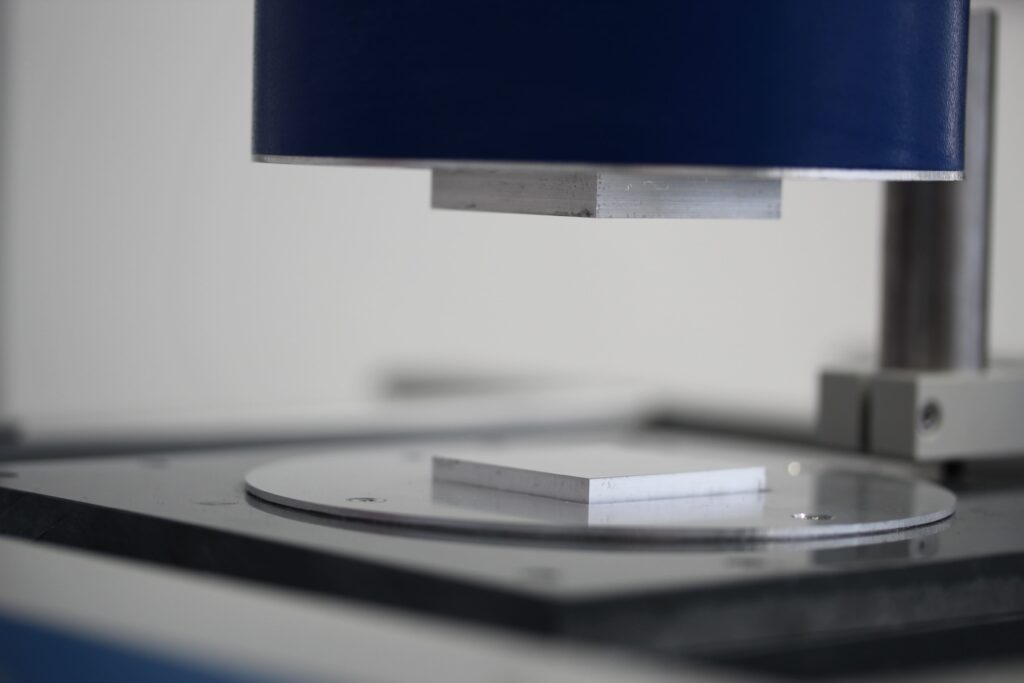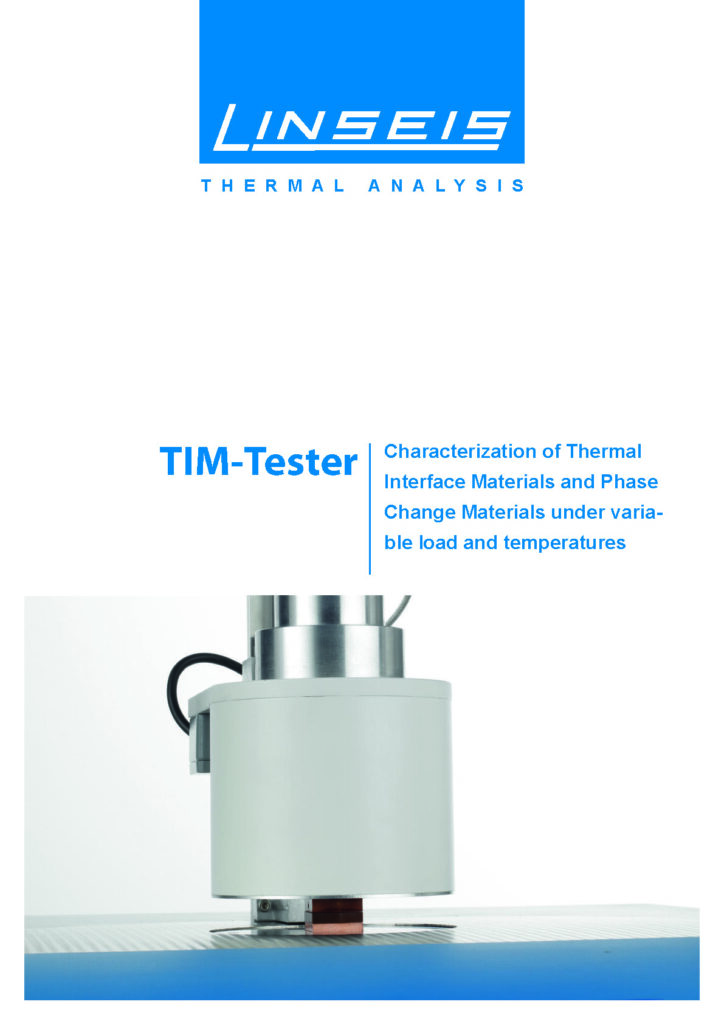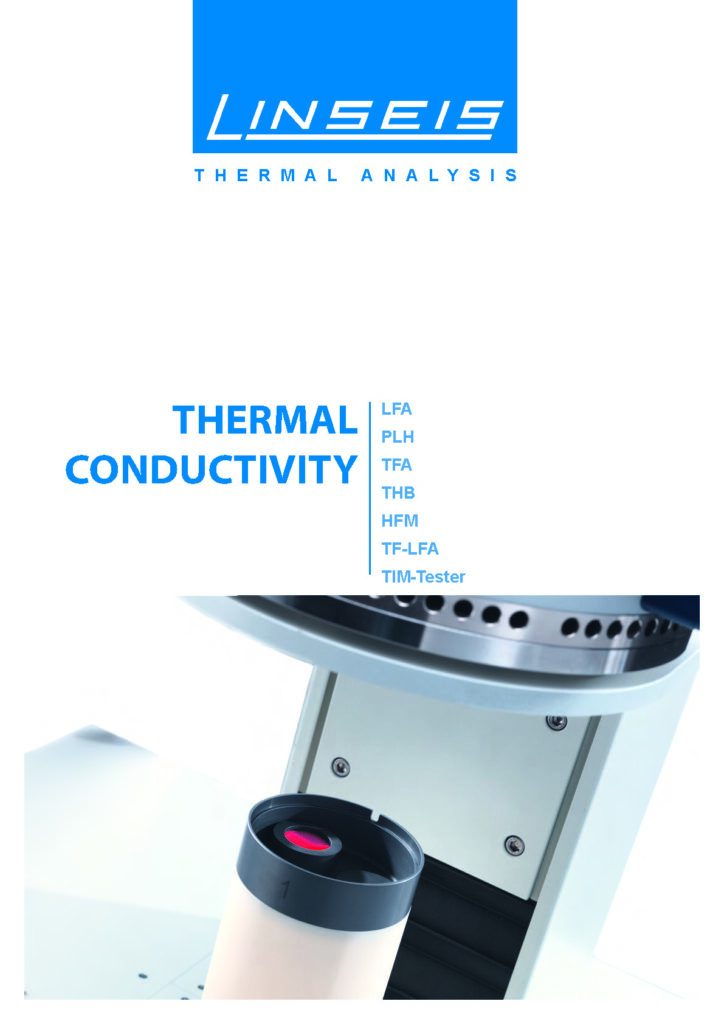Description
To the point
Waste heat management, thermal runaway protection in batteries and electronic packaging is becoming more and more important as power densities of these devices increase. Thermal management of these complex systems is not trivial and requires a fundamental understanding of how components and interface materials work together to shed heat.
Our LINSEIS Thermal Interface Material Tester (TIM-Tester/TIM L58) is the perfect solution for thermal management optimization of these complex systems.
The TIM-Tester (TIM L58) measures the thermal impedance of sample materials and identifies an apparent thermal conductivity for a wide range of materials from liquid compounds and pastes to hard solid materials. The approach is consistent with the ASTM D5470 – standard.
- Automatic pressure adjustment using electric actor (up to 10 MPa)
- Automatic thickness determination using high resolution LVDT
- Instruments working according to ASTM D5470
- Full integrated, software controlled device
Thermal interface materials such as thermal fluids, thermal pastes (greases), phase change materials (PCM), solders or resilient thermal conductors are tested automatically by applying a pressure of up to 10 MPa (for ø 25 mm sample) and temperature of up to 300°C at the hot side.
The software interface allows the instrument to be operated automatically over a wide temperature and pressure range, while all test parameters are recorded in real time. This allows the user the freedom to fully explore an experimental design space for materials optimization. The sample holder is designed with sample size and shape flexibility in mind to accommodate actual size parts.
Typical samples include solids, pastes, pads and more. Different meter bars for varying applications (depending on thermal impedance of the sample materials and temperature range).
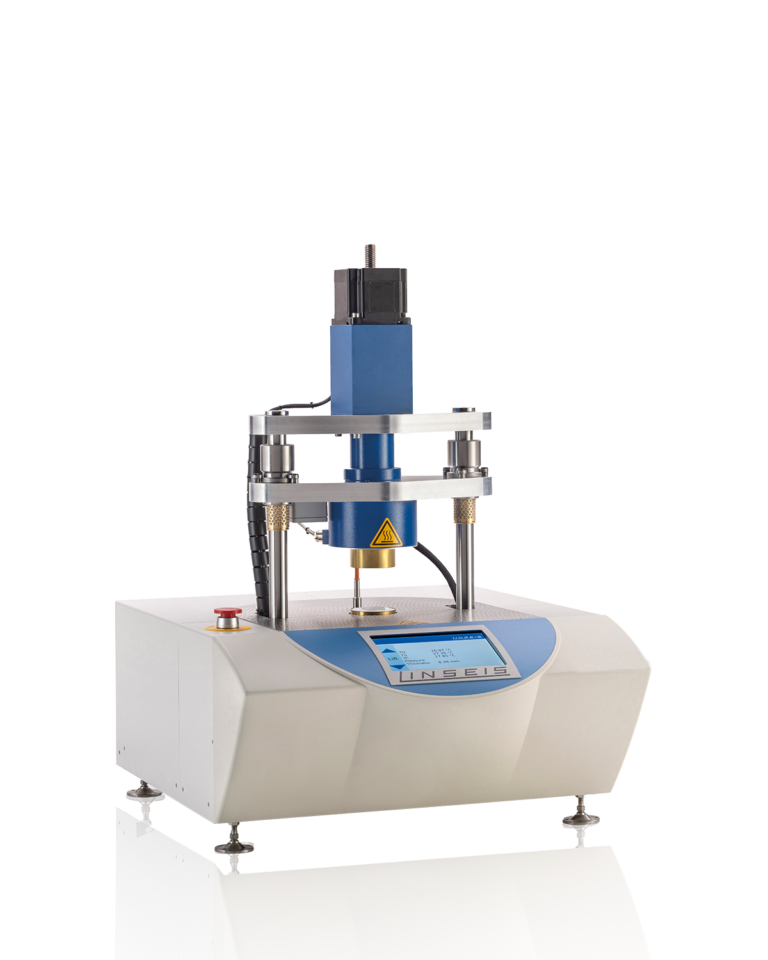
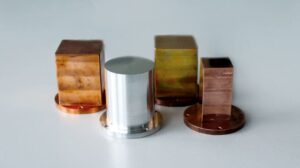
Exchangeable meter bars
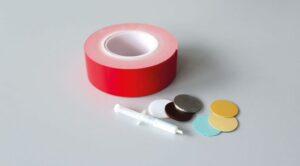
Different samples of thermal interface materials

Solid samples and TIM Pads
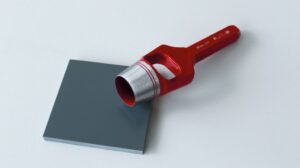
Cutting tool for sample preparation
Measuring principle
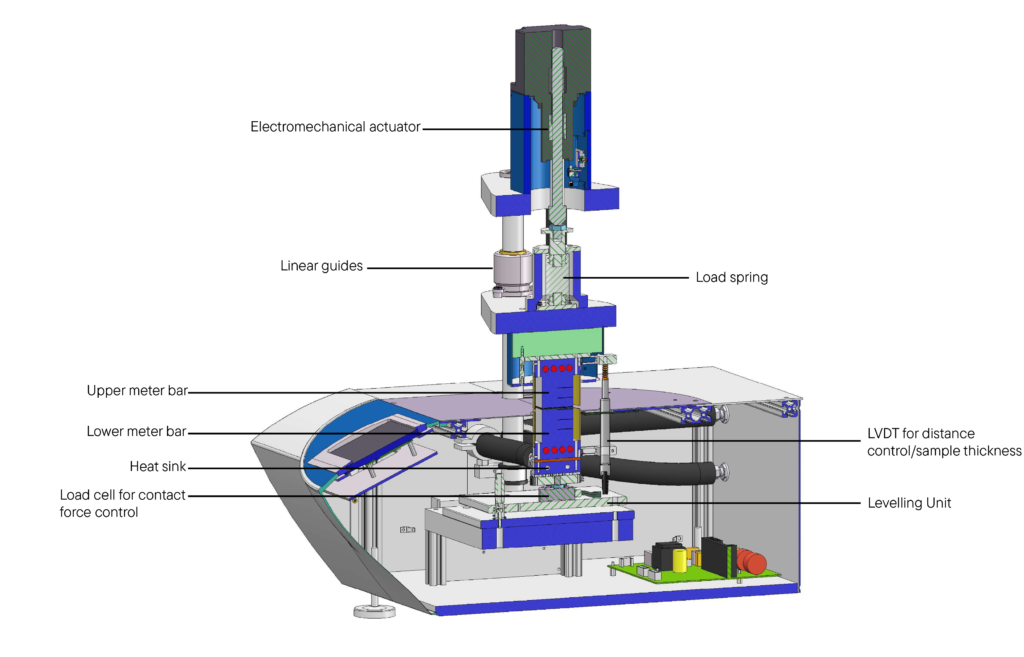
A sample is positioned between a hot and a cold meter bar, where the hot meter bar is connected to a regulated heating stage and the cold meter bar is connected to a thermostatically controlled, liquid cooled heat sink. The contact pressure on the sample can be automatically adjusted with an integrated electric actor (in terms of pressure stability over temperature). The sample dimension (thickness) can either be entered manually or can be measured (and controlled) using an integrated sensor.
The heat flux through the sample is measured using several temperature sensors which are located in a known distance inside of each of the meter bars. The thermal impedance can be obtained from the temperature drop caused by the sample material using its geometry for the calculation. For obtaining the apparent thermal conductivity, the thermal impedance for a single and a multiple layered specimen can be plotted against the thickness of the respective specimen.
Unique Features
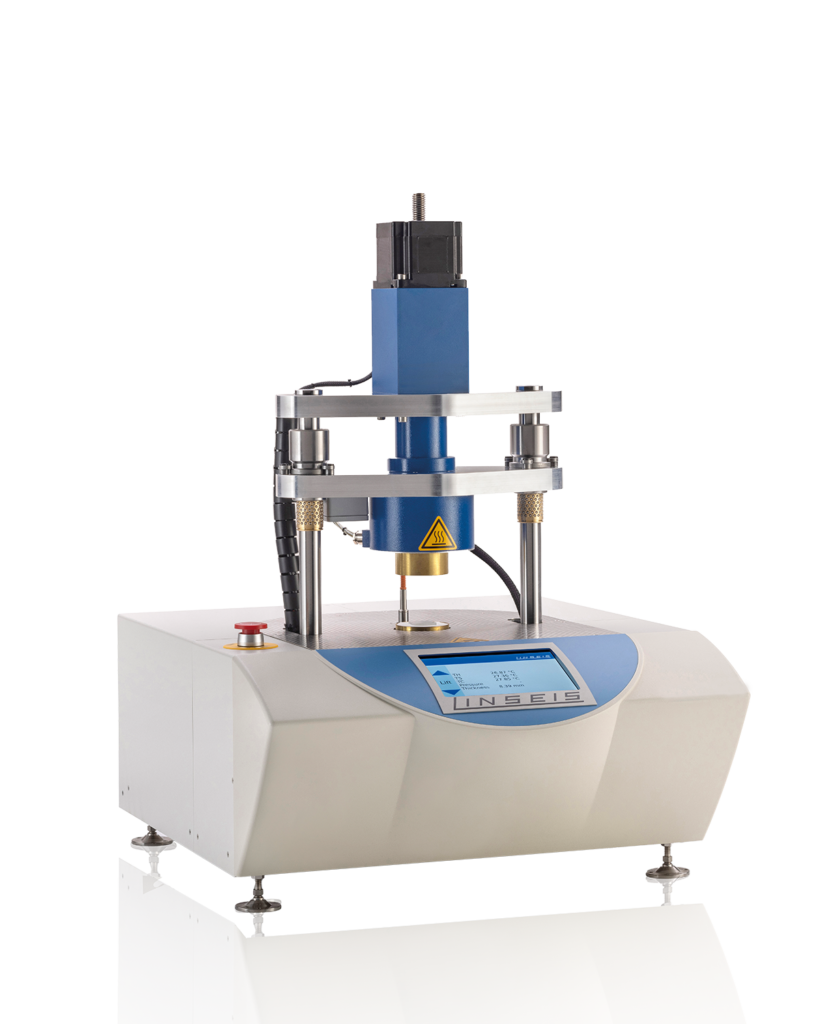
Precise measurement:
High accuracy in evaluating the
thermal performance of interface materials
Wide temperature range:
measurements up to 300°C
High reproducibility:
Reliable and repeatable test results
Versatile application:
Suitable for various industrial
and electronic applications.
User-friendly software:
Simple data acquisition and analysis.
Questions? We're just a call away!
+1 (609) 223 2070
+49 (0) 9287/880 0
Our service is available Monday to
Thursday from 8-16 o’clock
and Friday from 8-12 o’clock.
We are here for you!
Specifications
Hard Facts
MODEL | TIM-TESTER (TIM L58) |
|---|---|
| Temperature range: | -30°C to 300°C* |
| Sample size: | Round: ø 20 mm, 25 mm, 40 mm Rectangular: 20 mm x 20 mm, 25 mm x 25 mm, 40 x 40 mm Other sizes on request |
| Sample thickness: | 0.01 mm to 8 mm (up to 20 mm possible) |
| Measuring range of the sample: | 0.1 – 50 W/mK |
| Range of sample resistance: | 0.01 – 8.0 K/W |
| Contact pressure range: | 0 to 16 MPa (depending on sample size and shape) From round ø 20mm (up to 16 MPa) to ø 40 mm (up to 4 MPa) and rectangular 20mm x 20mm (up to 8 MPa) |
| Force options: | 1 kN, 2 kN, 5 kN |
| Material of the measuring rods: | Aluminium, copper, brass (others on request) |
| Software plugins: | Thickness modulation Temperature change Quality management tool |
| Cooling options: | Standard water cooling unit, Intracooler 600 (-20°C cold side)**, Intracooler 1000 (-30°C cold side)** |
| Power supply: | 110/115/220/230 VAC 50/60 Hz |
| * Under optimum conditions ** Lowest counter bar temperature on the cold side under optimum conditions |
|
Detailed view of the measuring body
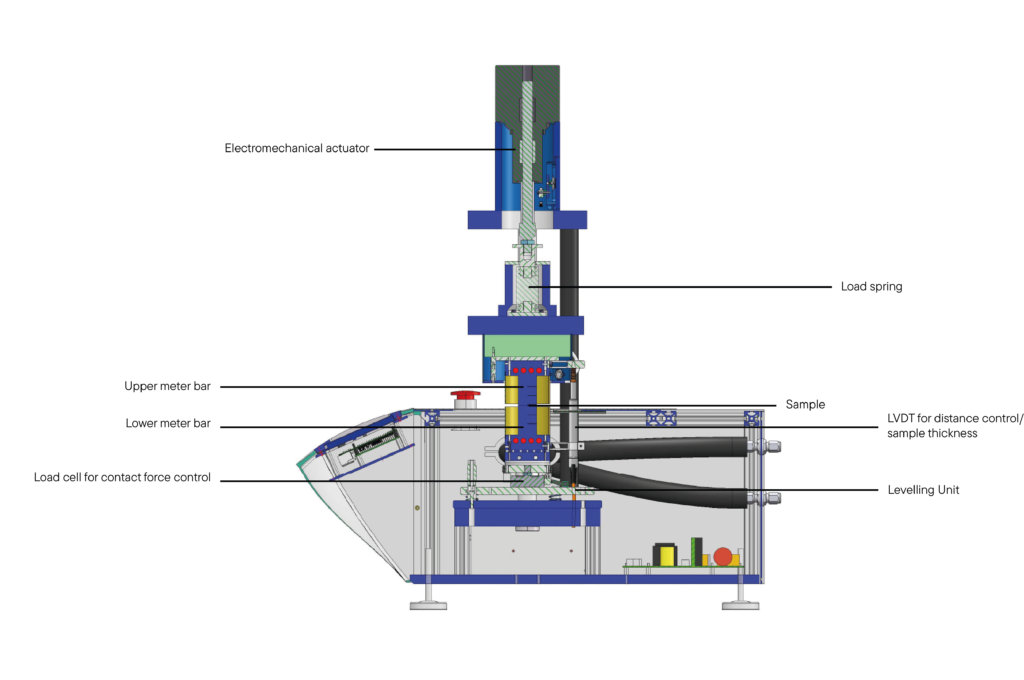
Software
Making values visible and comparable
The all new Rhodium Software greatly enhances your workflow as the intuitive data handling only requires minimum parameter input. AutoEval offers a valuable guidance for the user when evaluating standard processes such as thermal impedance or thermal conductivity determination.

General features
- Software packages are compatible with latest Windows operating system
- Set up menu entries
- Software packages are compatible with latest Windows operating system
- Software controlled heating, cooling or dwell time segments
- Software controlled thickness determination, force/pressure adjustment
- Easy data export (measurement report)
- All specific measuring parameters (User, Lab, Sample, Company, etc.)
- Optional password and user levels
- Multiple language versions such as English, German, French, Spanish, Chinese, Japanese, Russian, etc. (user selectable)
Applications
Application: Measurement of Vespel™ (at 50°C, 1MPa)
Measurement of the thermal impedance (thermal conductivity) of a 25mm x 25mm Vespel™ sample at 50°C (TH=70°C, TC=30°C) and a contact pressure of 1 MPa. Three different samples with a thickness between 1,1 mm and 3,08 mm have been measured in order to determine the apparent thermal conductivity and thermal contact resistance (using linear regression).
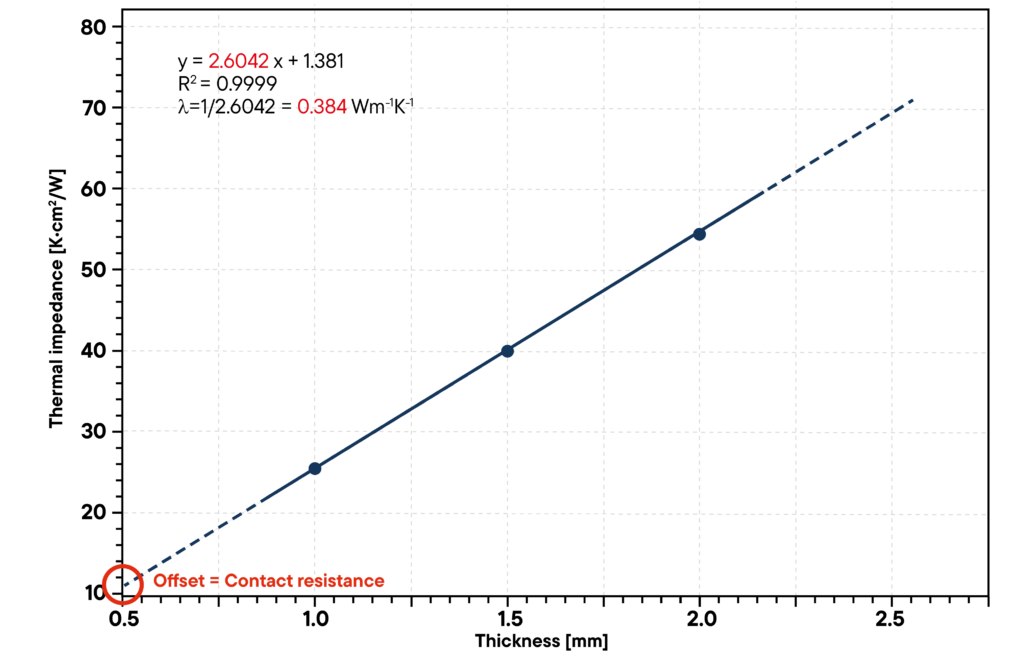
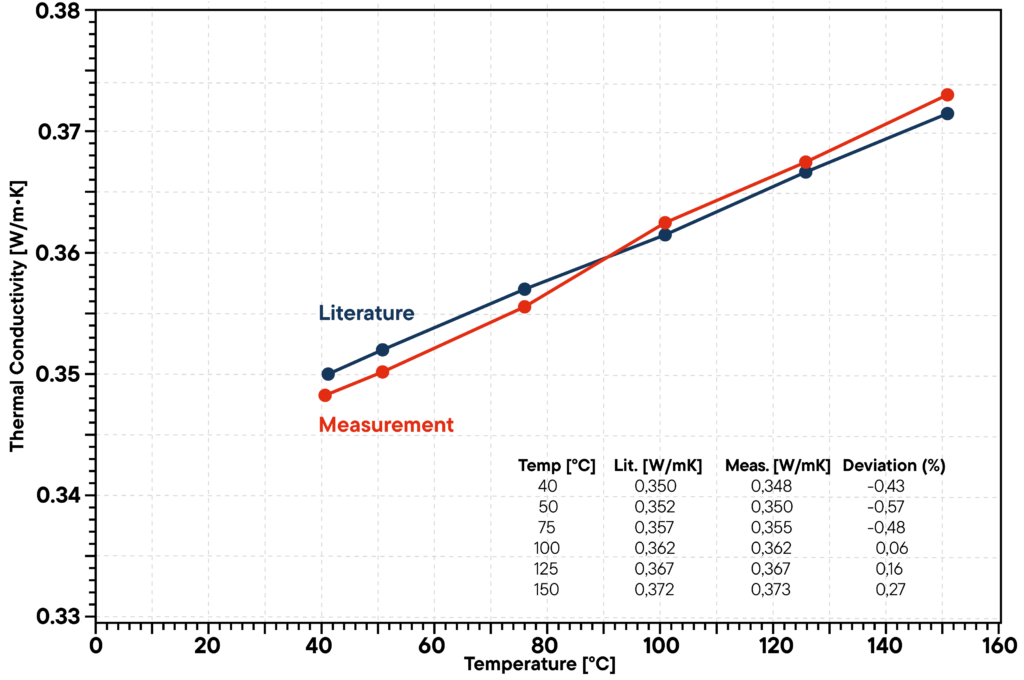
Application: Temperature dependent measurement of Vespel™
Plot of the temperature dependent apparent thermal conductivity of a 25mm x 25mm Vespel™ sample between 40°C and 150°C and a constant contact pressure of 1 MPa.
Application: Temperature dependent measurement of thermal conductive pads
Measurement of the thermal impedance (thermal conductivity) of a 25mm x 25mm thermal conductive pad (sample type 2) at 50°C (TH=70°C, TC=30°C). Three different samples with a thickness between 2.01 mm and 3.02 mm have been measured in order to determine the thermal contact resistance (using linear regression).
Application: Possible sample types
Type I
Viscous liquids that exhibit unlimited deformation when a stress is applied. These include liquid compounds such as greases, pastes, and phase change materials. These materials exhibit no evidence of elastic behavior or the tendency to return to initial shape after deflection stresses are removed.
Type II
Viscoelastic solids where stresses of deformation are ultimately balanced by internal material stresses thus limiting further deformation. Examples include gels, soft, and hard rubbers. These materials exhibit linear elastic properties with significant deflection relative to material thickness.
Type III
Elastic solids which exhibit negligible deflection. Examples include ceramics, metals, and some types of plastics.
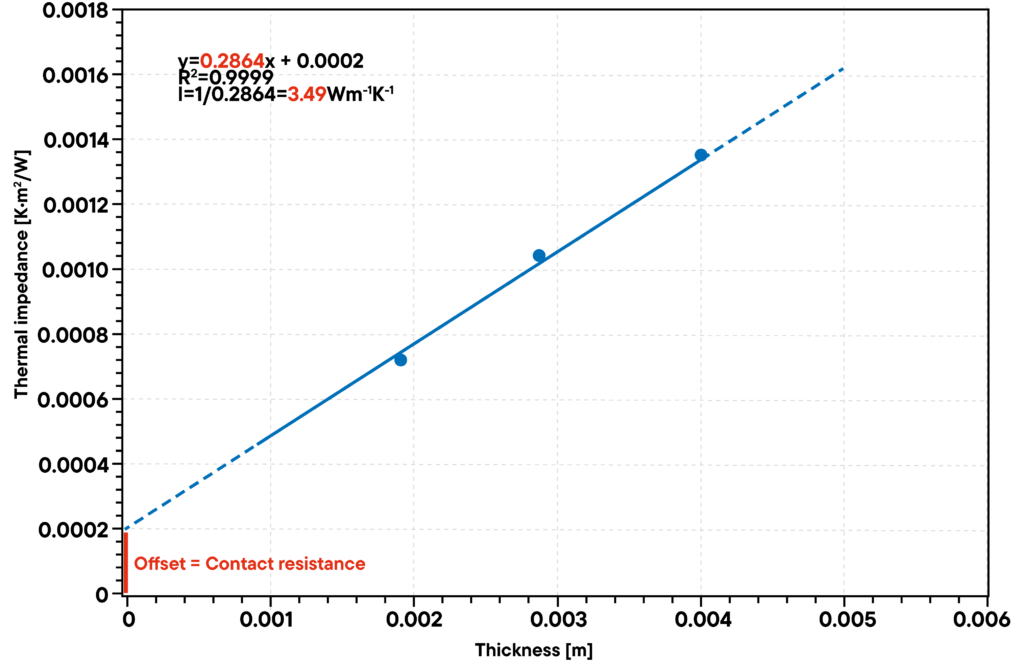
Well informed
